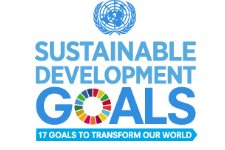Energising the Sustainable Development Goals through Appropriate Technology and Governance
International Conference at De Montfort University in Leicester (UK)
The inaugural conference will be held on 4th and 5th of July 2019. The Call for papers is now available.
Key dates:
Deadline for submission of abstracts: 30th January 2019
Acceptance information sent to authors: 28 February 2019
Deadline for full paper submission 30th April 2019
Conference presentation 4-5, July 2019
The Institute of Energy and Sustainable Development (IESD) with the support of Centre for Computing and Social Responsibility (CCSR) and the Centre for Enterprise and Innovation at De Montfort University (Leicester, UK) is organising an international conference in July 2019 in Leicester on Energising the SDGs through appropriate technology and governance. We are inviting abstracts of papers for presentation in the conference.
The vision of the Sustainable Development Goals (SDGs) is to transform living conditions of all people on the Earth so that we can live within the ‘planetary boundaries’ while enjoying economic prosperity and social wellbeing. The transformative change aimed through the SDGs requires a paradigm shift in thinking to break away from the current development trajectories that are resource intensive, inefficient (hence wasteful), environmentally damaging, growth-driven, and socially inequitable and unjust. The Sustainable Development Goals (SDGs) offer the opportunity to approach sustainable development in an integrated, interconnected way.
However, building ‘the world we want’ and reaching the SDGs by 2030 faces a number of major challenges which require innovation, including:
1. Demanding timelines. To reach the SDGs by 2030 would require a Marshall-like plan that has to be implemented meticulously. In many areas, implementation needs to shift from evolutionary to revolutionary timelines. Our understanding of the issues, evidence to support the decision-making process and our ability to analyse the issues effectively and manage progress in a timely manner will hinder progress.
2. Weak governance. Countries facing the greatest challenges are mostly low-income countries, with weak governance arrangements. Can top-down management approaches by governments be strengthened so that a Marshall-like Plan can be effectively implemented? Designing a modern governance arrangement that can work in these countries remains a challenge. On the other hand, the co-creation of sustainable bottom-up solutions at a decentralised level needs to be supported through innovative thinking, open knowledge sharing, business ideas, and empowering local communities and actors.
3. Complexity. As SDGs are an interconnected and integrated set of targets, better understanding of their inter-relationships, synergies and conflicts is required. The human-nature interactions in the primary, secondary and tertiary sectors affect the natural capital, ecosystem services, human capital development, natural environment, the climate and the communities. Our understanding of these interactions is still incomplete and scientific research can surely improve our knowledge.
4. Lack of innovation ecosystems in many developing countries. The relationships between institutions, policymakers, researchers, change agents on the ground and communities, with open access to developmental resources, all need to be enhanced.
In this context, it is important to consider how appropriate technologies and governance arrangements can support the achievement of the SDGs by 2030. While technology has shaped the past development, it has also contributed to environmental damages, inequality, social and ethical issues. Similarly, management of the development process depends on transparent governance arrangements and bad governance is considered to be the root of underdevelopment. As the SDGs are aiming to leave no one behind, we cannot rely on the existing technology or the governance arrangements to solve the present problem.
This leads us to the main focus of this conference. How can the countries reap the benefits of innovation in technologies and governance arrangements to reach the SDGs? What sort of appropriate technologies, governance arrangements and practices would be required to deliver the SDGs? Are there priority areas for interventions and how such priorities vary across countries? What is the role of sustainable enterprise and social innovation in achieving the SDG? Are there any best practices that are emerging in terms of technology and governance practices? What lessons can countries learn from one another? These are some of the issues we would like to consider. We are particularly interested in four main thematic areas:
• Solutions for the base of the pyramid population, including gender inequality solutions
• Solutions for sustainable communities and sustainable living (both urban and rural)
• Solutions for a low carbon pathway
• Sustainable enterprise and social innovation
We invite contributions from researchers, academics and other stakeholders on the interaction of appropriate technology and governance in these areas. Please send a structured abstract of 500 words by 15th January 2019 indicating the purpose of the work, the methodology used, main findings and your recommendations for energising the implementation of SDGs by 2030. A review panel will consider all abstracts and authors of the accepted abstracts will be asked to submit the full paper (with a page limit of 8 A4 sides) by 30th April 2019. At least one author will have to present the paper in the conference.
For any queries, contact: Professor Subhes Bhattacharyya (subhesb@dmu.ac.uk)


 Join our list of experts
Join our list of experts